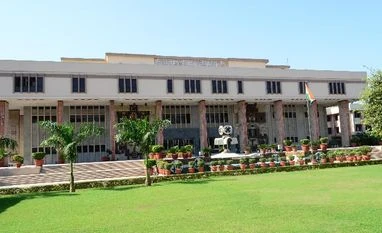PIL in Delhi HC seeks special leaves, paid menstrual leaves for women staff
The petition by Delhi Labour Union, through advocate Rajiv Agarwal, sought direction to the Centre and Delhi government to grant paid leaves for four days a month to all classes of women employees
)
Besides paid leaves, they also sought for facilities of periodic rests, separate and clean toilets and provision of sanitary napkins to women employees during menstruation period.
A PIL came up before the Delhi High Court on Monday seeking direction to the Centre and AAP government for granting paid leaves and periodic rests to women employees during menstruation time.
The plea sought that women be provided special casual or paid leave as menstruation is intrinsically related to human dignity and by not providing separate toilet facilities, breaks to maintain hygiene during the particular period and paid leaves in form of special casual leaves, the authorities are depriving the employees of their human dignity.
The plea could not be heard as the bench of Chief Justice D N Patel and Justice Prateek Jalan was not holding the court on Monday. It is now listed for hearing on November 23.
The petition by Delhi Labour Union, through advocate Rajiv Agarwal, sought direction to the Centre and Delhi government to grant paid leaves for four days a month to all classes of women employees. including daily wage, contractual and outsourced workers and to pay overtime allowance to menstruating women employees if they opt to work during that period.
Besides paid leaves, they also sought for facilities of periodic rests, separate and clean toilets and provision of sanitary napkins to women employees during menstruation period.
Also Read
The petitioner, a registered trade union, said the plea is concerned with the right to life and dignity of the women workers and it for the benefit of all women employees and general public as menstrual health and hygiene is of great public importance but still it is considered as a taboo.
A significant number of these employees menstruate and there is very little consideration or even recognition for the emotional, physical, hormonal and physiological trauma that these employees undergo during their menstrual cycle, the plea said.
It gave examples of several private employers like Zomato and Culture Machine which have introduced paid menstruation leave for their female employees.
It also referred to Prime Minister Narendra Modi's Independence day speech where he spoke of sanitary napkins.
For the first time, the topic of menstruation featured in a Prime Minister's address and there has been a main streaming of the diversity of female experiences and their criticality to their equal rights in the workplace. The time, therefore, is ripe to break the taboo and misconception around menstruation and consider the genuine needs of menstruating female employees, it said.
The plea also cited the examples of various countries which have introduced laws on menstrual leaves, including Japan, Taiwan, South Korea (one physiological leave per month under the Labour Standards Act), Indonesia and Zambia (1 day per month known as Mother's Day).
As a compromise to the demand for menstrual leave raised by non-gazetted employees union, the Bihar Government introduced two days special casual leave every month for all government women workers in 1992. This facility is still availed by women workers of Bihar and Jharkhand, it claimed.
It said the government does not provide any facility to the menstruating employees and no special paid leave is granted to them and in many workplaces of the government, facilities of sanitary napkin vending machines, separate and clean toilets, separate breaks during menstruation, which are required for maintaining hygiene, are also not provided.
Regarding the daily wage muster roll workers, contractual workers and outsourced workers, the plea said they also face severe difficulties during menstruation and their workplaces lack adequate sanitation and clean toilets which hamper hygiene and they are not given the facility of earned leave and sick leave by the employer.
(Only the headline and picture of this report may have been reworked by the Business Standard staff; the rest of the content is auto-generated from a syndicated feed.)
More From This Section
Don't miss the most important news and views of the day. Get them on our Telegram channel
First Published: Oct 19 2020 | 5:57 PM IST
